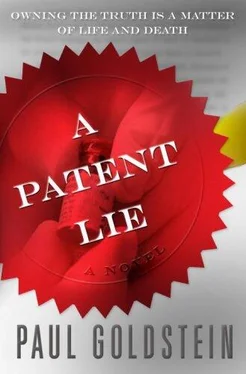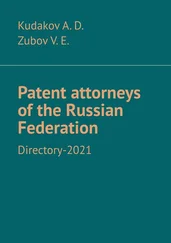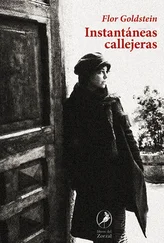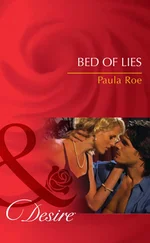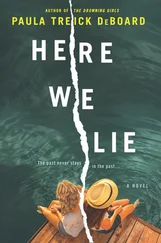Paul Goldstein - A Patent Lie
Здесь есть возможность читать онлайн «Paul Goldstein - A Patent Lie» весь текст электронной книги совершенно бесплатно (целиком полную версию без сокращений). В некоторых случаях можно слушать аудио, скачать через торрент в формате fb2 и присутствует краткое содержание. Жанр: Криминальный детектив, на английском языке. Описание произведения, (предисловие) а так же отзывы посетителей доступны на портале библиотеки ЛибКат.
- Название:A Patent Lie
- Автор:
- Жанр:
- Год:неизвестен
- ISBN:нет данных
- Рейтинг книги:3 / 5. Голосов: 1
-
Избранное:Добавить в избранное
- Отзывы:
-
Ваша оценка:
- 60
- 1
- 2
- 3
- 4
- 5
A Patent Lie: краткое содержание, описание и аннотация
Предлагаем к чтению аннотацию, описание, краткое содержание или предисловие (зависит от того, что написал сам автор книги «A Patent Lie»). Если вы не нашли необходимую информацию о книге — напишите в комментариях, мы постараемся отыскать её.
A Patent Lie — читать онлайн бесплатно полную книгу (весь текст) целиком
Ниже представлен текст книги, разбитый по страницам. Система сохранения места последней прочитанной страницы, позволяет с удобством читать онлайн бесплатно книгу «A Patent Lie», без необходимости каждый раз заново искать на чём Вы остановились. Поставьте закладку, и сможете в любой момент перейти на страницу, на которой закончили чтение.
Интервал:
Закладка:
The give and take was perfect, but it didn't calm Seeley's concerns about the young partner. He could write off Palmieri's coolness in their early encounters to the jitters of dealing with a new first chair. But the negligence with the motion papers and his witness's lodging was harder to dismiss. So was his continued resistance to Seeley's direction, like insisting that they keep Steinhardt as the lead witness, even though Pearsall himself had wanted to place him lower in the order. If Palmieri wasn't exactly working to undermine Seeley's case, he didn't seem to be enthusiastically supporting it, either.
Chaikovsky said, “I was assuming when I made these charts that Vaxtek's patent would be upheld and that it would be able to exclude low-price competitors.”
“And if the jury voted to strike down the patent? If Vaxtek couldn't keep the cheap drugs out?”
“Vaxtek would lose all of the almost half-billion dollars it invested in AV/AS.”
Palmieri snapped the laptop closed. “Your witness.”
Fischler fired off three brisk questions before she even reached the lectern. The man-tailored suit was intentionally aggressive, Seeley thought, but the oxford button-down and patterned silk tie were what a law student might wear to her first moot court argument.
“These charts you fabricated, Professor Chaikovsky, are they based on assumptions?”
The witness winced. “It's pronounced Chi-kof-ski. Like the composer.”
The break in rhythm momentarily ruffled Fischler. She had loosened her severe librarian's bun today and the ponytail bobbed. “Are your charts based on assumptions, Professor?”
“The charts are based mainly on data, but, yes, like any diagram, they depend on certain hypotheses.”
“And these hypotheses of yours, are they the same as assumptions?”
“You could say so, yes.”
“It doesn't matter what I say, Professor, the jury wants to know what you say.”
“Yes, for these purposes, a hypothesis is the same as an assumption.”
Fischler addressed the witness, but faced the jury. “Is it correct that one assumption behind your charts is that Vaxtek will face no competition in its sales of AV/AS?”
An alarm went off in Seeley's mind. He looked over at Palmieri, whose fingers floated over his keyboard.
“Yes, they make that assumption.”
Fischler's eyes were still on the jury, not the witness. “And why did you make that assumption, Professor?”
“Because the effect of a patent is to exclude competition-”
“Professor, are you aware of any patented drugs that face competition from other patented drugs?”
The bailiff had not raised the lights, and in the pale shadows, the smugness drained out of the witness's expression.
Seeley couldn't believe that Palmieri had failed to prepare his witness for the question.
A detectable tremor in her voice, Chaikovsky said, “Yes, of course.”
“Can you give me an example?”
“Well, there are several patented cholesterol-lowering drugs, called statins, on the market.” She glanced at Palmieri, who nodded gently, and after a moment she, too, understood that Fischler's sole aim was to rattle her. “The difference is that there is no pharmaceutical comparable to AV/AS that doesn't infringe Vaxtek's patent, and that means AV/AS will not have any competition.”
Fischler's line of questioning had been a bluff. Other companies were working on AIDS vaccines but, without industrial espionage, there was no way St. Gall and its lawyers could know what they were working on, or how far they had progressed. Palmieri would need to time his objection carefully.
“Do you know how many other pharmaceutical companies are investigating an AIDS vaccine? Two? A dozen?”
“I can't give you an exact number,” the economist said.
“So in your charts, and in your testimony, you just assumed that there were none.”
“Keep her honest,” Seeley said to Palmieri. To himself, he acknowledged that, at the moment, the best they could do was to disrupt Fischler's pace.
Palmieri rose. “Objection, Your Honor. Outside the scope of direct.”
“This is an expert who's on the stand, Your Honor. We have latitude to examine the basis of her testimony.”
“Overruled.” Then, more gently, to Fischler: “I'm sure you will find a way, Counselor, to phrase your question so that it stays within bounds.”
“So, Professor, for all you know, a dozen other companies might have done the same research as Vaxtek and were just a little late getting to the Patent Office.”
“Objection.” Palmieri was on his feet again. “This violates the parties' stipulation on priority.”
“Counselor?” Judge Farnsworth seemed amused by the sparring.
Fischler said, “The stipulation is as to priority of invention, Your Honor, not the race to the Patent Office.”
“If you have another objection, Mr. Palmieri, I'll be glad to entertain it.” This time her voice was almost musical.
“The question is outside the scope of the direct examination.”
“That's right, Counselor, it is. Ms. Fischler, this may be the time to turn to another line of questioning.”
“I have just one last question of the witness, Your Honor.” She looked hard at Chaikovsky. “Would you please tell the court, Professor, how much you are being paid for your testimony here today?”
Palmieri started up. The question was as cheap as the old yes-or-no chestnut about whether the witness had stopped beating his wife. Barnum hunched forward. Seeley looked over at Thorpe who was watching him. Thorpe smiled and shrugged. Seeley placed a hand over Palmieri's. “Let her handle this one herself.” Amateurish as the question was, Seeley was sure that Chaikovsky had been asked it before.
“You've asked two questions, Ms. Fischler, so let's see if I can disentangle them.” She was the professor lecturing a not very bright student. “First, I am not being paid for my testimony but for my time. Second, I am being paid at the same rate, $650 an hour, that I am paid whether the work involves courtroom testimony or corporate consulting.”
Barnum sat back in his chair. Palmieri's taut posture relaxed.
“I have no more questions, Your Honor.”
“Redirect, Counselor?”
Seeley whispered to him.
Palmieri said, “None, Your Honor.”
Their case had taken a hit from Fischler's bluff, and redirect would only magnify it. Seeley would have to repair the damage with his witness this afternoon.
There is an unwritten rule among lawyers never to discuss a client's business in public places-on the sidewalk, in an elevator-even in a taxi with a driver who by all appearances understood few words of English, but whose eyes darted in the rearview mirror between Seeley and Palmieri. More often than not in these situations, Seeley found himself asking about family.
“Did you grow up out here?”
Palmieri shook his head. “Spencer, Iowa. One of the one hundred best places to live in America. My mom's still there.”
“Any other family?”
“Two older sisters. One's in St. Louis, the other's still in Spencer.”
Seeley nodded. “What about your father?” This was always where his curiosity ultimately came to rest. What about your father?
“He died in Vietnam. All I know about him is from my mother's stories, some pictures in an album, and a Distinguished Service Cross.”
“A hero.”
“A victim.” Palmieri checked the rearview mirror where the driver's eyes were still watching them. “But don't get the wrong idea. I had a great time as a kid. There were uncles and aunts on both sides, lots of support. Just no father.”
“But you left Spencer.”
“We're still close,” Palmieri said as the taxi pulled to the curb on Battery Street. “We talk every week. I go back for the family blowout at the lake every summer. But Spencer doesn't have many opportunities for big cases.” Getting out of the taxi, the glow was still on him from the morning's success with his witness. “Or for gay men. San Francisco's got both.”
Читать дальшеИнтервал:
Закладка:
Похожие книги на «A Patent Lie»
Представляем Вашему вниманию похожие книги на «A Patent Lie» списком для выбора. Мы отобрали схожую по названию и смыслу литературу в надежде предоставить читателям больше вариантов отыскать новые, интересные, ещё непрочитанные произведения.
Обсуждение, отзывы о книге «A Patent Lie» и просто собственные мнения читателей. Оставьте ваши комментарии, напишите, что Вы думаете о произведении, его смысле или главных героях. Укажите что конкретно понравилось, а что нет, и почему Вы так считаете.
